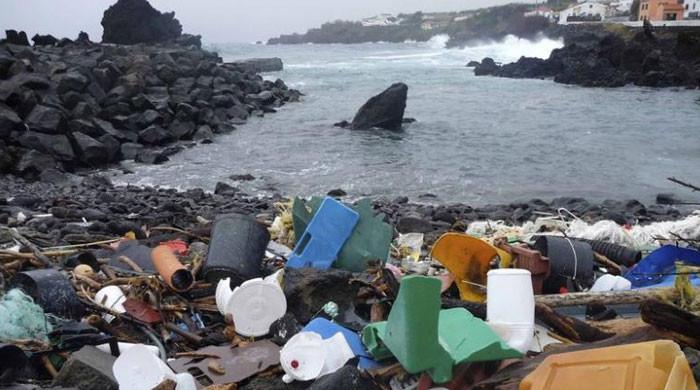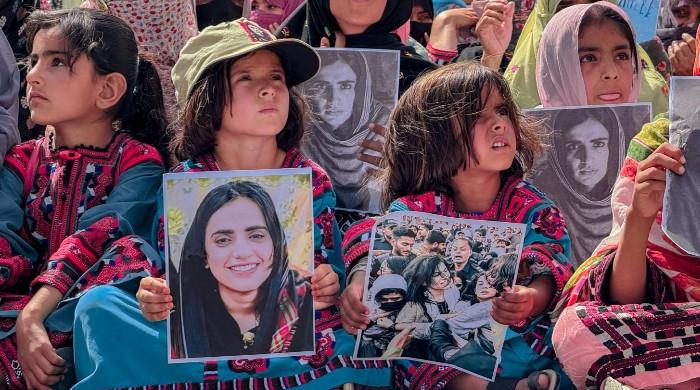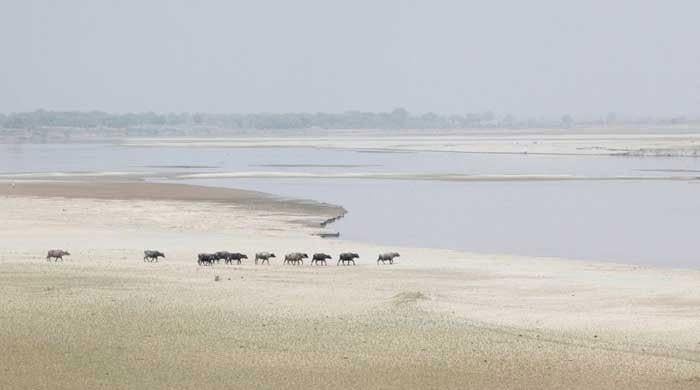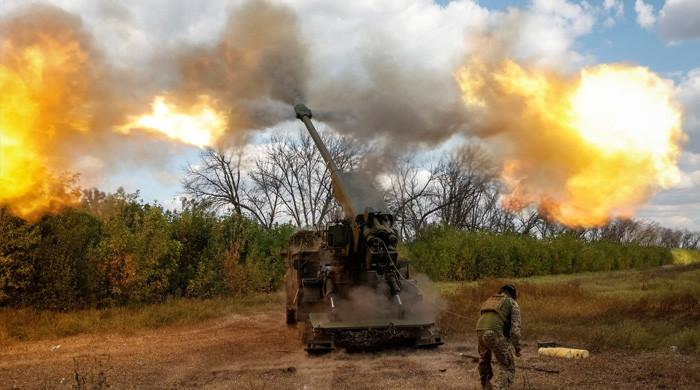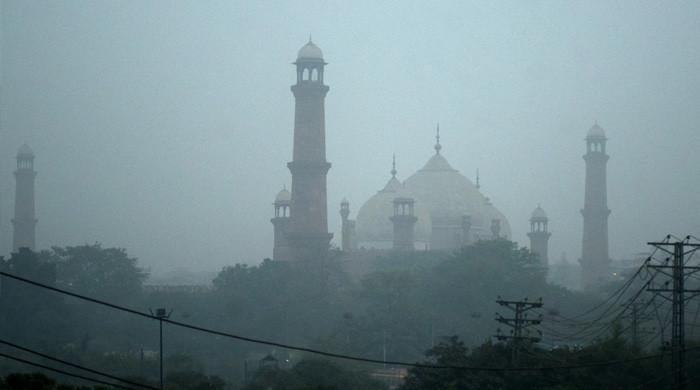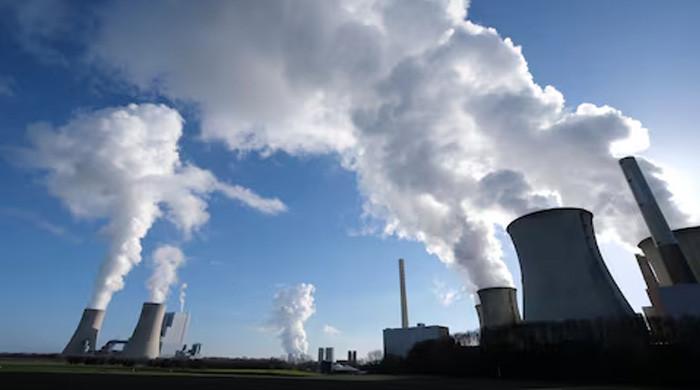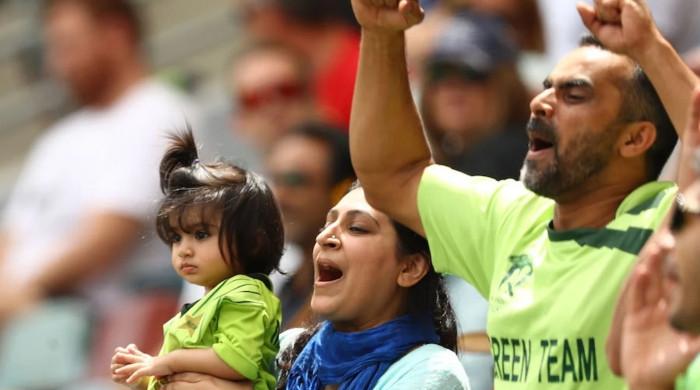PPP in ‘hot water' over ‘water'
It remains to be seen what Bilawal Bhutto will announce about the canal during his April 4 speech at Garhi Khuda Bux
April 03, 2025
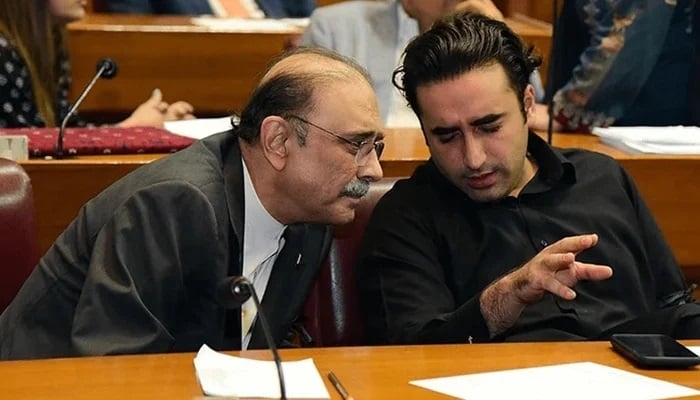
Today, the Pakistan Peoples Party (PPP) is up against a challenge it has never faced since its formation 55 years ago in 1967, especially in its stronghold, Sindh, over its alleged role in the Cholistan Canal project. Despite PPP's persistent denial, claims have been doing rounds that President Asif Ali Zardari gave his “consent” to the project during a high-profile meeting last year. Now, all eyes are set on PPP Chairman Bilawal Bhutto Zardari, who, in the absence of President Zardari due to illness, is expected to make a conclusive decision on the party's relationship with the ruling Pakistan Muslim League-Nawaz (PML-N), on the eve of the 46th death anniversary of PPP founder and executed prime minister Zulfiqar Ali Bhutto (ZAB).
Without a doubt, Bhutto’s hanging on April 4, 1979 — termed a ‘judicial murder’ both inside and outside Pakistan — shook the Sindh to an unprecedented political awakening. This awakening later manifested in the strongest political movement in rural Sindh, particularly in 1983, led by the then-opposition alliance called the Movement for Restoration of Democracy (MRD). Hundreds of people lost their lives during the movement, and although it did not topple General Zia ul Haq’s regime, it forced Zia to scrap the general elections, even on a non-party basis.
This movement also saw the emergence of a new Sindhi intelligentsia, especially a new Sindhi nationalist media, with many Sindhi newspapers and magazines coming out, which later resisted the Kalabagh Dam project. On the back of the intelligentsia were progressive writers, professors, journalists from Punjab, and progressive thinkers across the board. One of the parties that emerged during the MRD movement and is now playing a leading role in the ongoing ‘Sindh Pani Bachao Movement’ is the Awami Tehreek (AT), formed by Rasool Baksh Paleejo.
He was a powerful voice, and the AT was one of the most organised parties, with strong women, peasants, and even schoolchildren wings. However, the AT later split into factions as father and son Ayaz Latif developed differences. Thus, the present political awakening over the controversial ‘Six Canal Project’ has stirred serious concerns in rural Sindh. Unfortunately, parties from urban Sindh, like MQM and even PTI, as well as mainstream media, may have little understanding of the intensity of the current movement and the issue itself.
Whether myth or reality, the fact remains that the movement managed to create a strong perception, especially in Sindh, that President Zardari approved the project in July last year. PPP’s belated response has generated anti-canal sentiments and misgivings about its role. Over the last three months, the movement has gained momentum, leaving PPP with no choice but to join it, saying it will never compromise on Sindh’s interests.
The controversy surrounding the ‘leaked minutes’ of the meeting chaired by President Zardari at the Presidency, which included several high-profile officials, raised serious questions. Although President Zardari declared in a Joint Session of Parliament that the canal project was not in the interest of Sindh, it remains a mystery whether the minutes of the meeting at the President House were recorded or reported correctly. Who did it, and why didn’t the concerned spokesperson clarify or deny it at the time? Why was no probe ordered? Sindh’s longest-serving Chief Minister, Syed Murad Ali Shah, who had also served as provincial finance minister, held a marathon media briefing last week, making two significant points.
Firstly, he said, "The President can’t approve any project related to water without the approval of the Council of Common Interest (CCI), which has yet to be convened by the Prime Minister.” Secondly, he acknowledged that until the Prime Minister formally ‘shelved’ the project, anger in Sindh would not subside, no matter how strongly the PPP or the Sindh government clarified that the President had not approved. “I agree that the announcement must come from the PM,” he added. To be honest, the “Save Water Movement” in the province has reached a point where it has even overshadowed PPP’s traditional annual public meeting on the eve of ZAB’s death anniversary.
Bhutto’s ‘judicial murder’ has been vindicated decades later, most notably last year by the full bench of the Supreme Court, which declared that ‘justice had not been served’ to the former prime minister. On March 23 this year, Bhutto was posthumously awarded Pakistan’s highest civilian honor, the “Nishan-e-Pakistan,” in recognition of his outstanding services to the country. The award was received by his only surviving daughter, Sanam Bhutto, with tears in her eyes. Making matters worse for PPP, its key leader, former Prime Minister and Chairman of the Senate Syed Yousuf Raza Gillani, made a controversial statement, saying that PPP was not against the ‘canal project’ in principle.
However, it remains to be seen what announcement Bilawal Bhutto will make during his April 4 speech at Garhi Khuda Bux regarding the canal. It is unlikely that the PPP will immediately withdraw its support, but will it give a ‘deadline’ and ask the Prime Minister to shelve the project, or will it support it with ‘ifs and buts’? The most positive sign of the current water movement is that, despite its massive scale and huge response, it has remained one of the most peaceful movements, with not a single incident of violence.
The million-dollar question is whether the centre and those in power will be able to satisfy Sindh and reconsider the Cholistan project. In the 1990s, former prime minister Nawaz Sharif tried his best to convince Sindh on the Kalabagh Dam, even sending his then information minister, Syed Mushahid Hussain, with the task of winning Sindh over. However, he failed and returned to Islamabad empty-handed. PPP faces a tough task ahead — either to quit if no clear announcement comes from the PPP and the CCI meeting is not convened or to quit the coalition, as this anti-canal movement refuses to die.
The writer is a columnist and analyst for GEO, Jang, and The News
X: @MazharAbbasGEO




